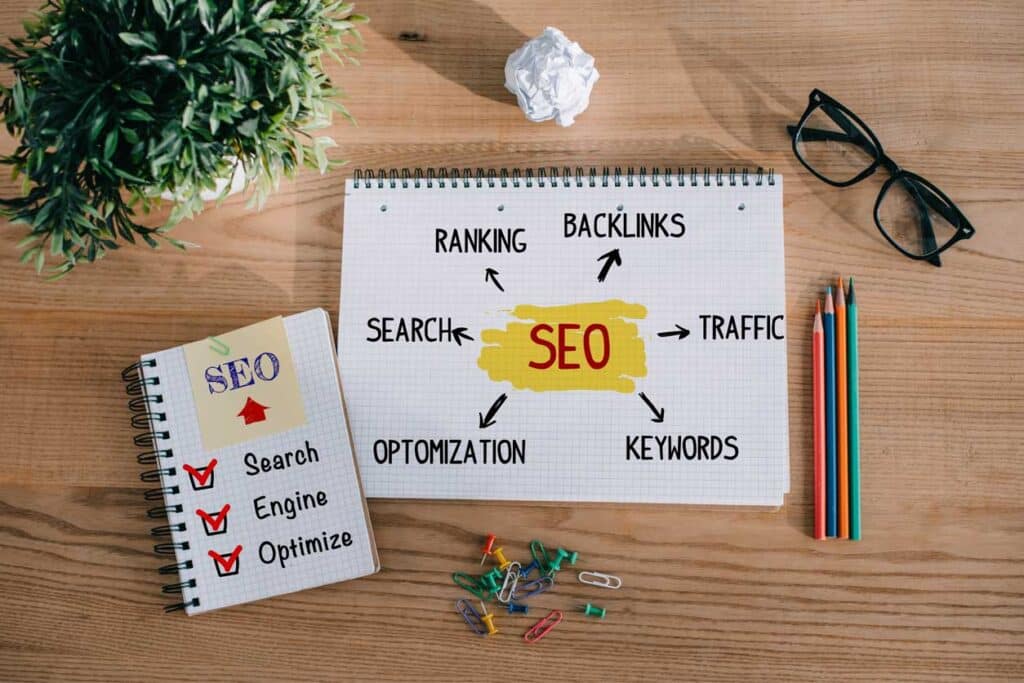
Keyword research serves as the cornerstone of any effective SEO plan. It involves finding keywords that are relevant to your business and are being searched for by your target audience. The objective is to optimize your website for these keywords, resulting in your site appearing at the top of search engine results when individuals search for them. To do keyword research, you can use tools like Google Keyword Planner, SEMrush, or Ahrefs.
On-page Optimization involves enhancing the individual web pages on your site. This includes optimizing your site's content, meta tags, header tags, and images. To optimize your site's on-page elements, you can use tools like Yoast SEO, which provides recommendations on improving your site's on-page Optimization.
Content optimization is a crucial element of SEO. This involves creating high-quality, relevant, and unique content optimized for search engines and your target audience. It would help if you focused on keyword density, meta descriptions, and header tags to optimize your content. You should also aim to create long-form content, as it has been shown to perform better in search engines.
Acquiring backlinks to your site is known as link building. These backlinks, which are links from other websites directing to yours, hold significant importance in SEO as search engines consider them as an indicator of your site's popularity and credibility. To establish quality backlinks, concentrate on producing valuable and informative content, making it attractive for other websites to link to. You can also approach other websites to request a link, but ensuring that these links come from trustworthy sources is crucial.
The structure of your site is also important for SEO. A well-structured site makes it easier for search engines to crawl and index your site, which can improve your SEO score. To improve your site's structure, you should create a clear and organized site hierarchy using descriptive and keyword-rich URLs. By utilizing internal linking, you assist search engines in comprehending the design of your site.
Site speed is essential for SEO, as it affects the user experience and can impact your site's ranking in search engines. To improve your site's speed, you should focus on reducing the size of your images, using a fast and reliable hosting provider, and using a content delivery network (CDN). You can use tools like GTmetrix and Google PageSpeed Insights to check your site's speed and receive recommendations on improving it.
With the increasing use of mobile devices to access the internet, mobile Optimization has become essential for SEO. To optimize your site for mobile, you should ensure that your site is responsive, meaning that it adjusts to the size of the screen it is being viewed on. It would help if you also focused on reducing the amount of text and images on your
Local SEO is the Optimization of your site for local search results. This involves optimizing your site for keywords that include a specific location, such as "restaurants in Los Angeles." To improve your local SEO, you should create a Google My Business listing, which provides information about your business, including its location and hours of operation. You should also ensure your site's content, and meta tags include relevant location-based keywords.
Social media has a significant impact on SEO as well. By effectively promoting your content on social media, You can drive more visitors to your website and enhance its visibility in search engine results. Additionally, incorporating social media sharing buttons on your site makes it easy for your visitors to share your content on their personal social media profiles, further increasing your reach and visibility. This simple addition can significantly enhance the impact of your SEO efforts.
User experience is essential for SEO, as it affects how long visitors stay on your site and how likely they are to return. To improve your site's UX, you should focus on making your site easy to navigate, providing high-quality and relevant content, and ensuring your site is visually appealing. You can use tools like Hotjar and Google Analytics to analyze your site's UX and receive recommendations on how to improve it.
Finally, tracking and analyzing your site's performance is essential to understand what is working. Tools like Google Analytics and SEMrush provide valuable insights into your site's performance, so you can make informed decisions about improving it. By keeping track of your website's traffic, bounce rate, and conversion rate, you gain insight into areas that need improvement. You can make informed, data-driven decisions to enhance your SEO score.
In conclusion, increasing your SEO score for a business requires a holistic approach that involves keyword research, on-page Optimization, content optimization, link building, site structure, site speed, mobile Optimization, local SEO, social media, user experience, and analytics and tracking. Following these tips can improve your site's visibility in search engine results and drive more traffic, leads, and sales to your business.
Suppose you're looking for professional help to improve your business's SEO score. In that case, you can contact our Web Studio Florida experts. We have years of experience helping companies improve their digital marketing strategies, including SEO. By working with Web Studio Florida, you can get the support you need to optimize your site for search engines and drive more traffic, leads, and sales to your business. To get in touch with us, click on the following link: https://webstudioflorida.com/search-engine-optimization-florida/.
Don't Keep poor SEO from holding your business back. Let the experts at Web Studio Florida help you improve your SEO score and reach your digital marketing goals.